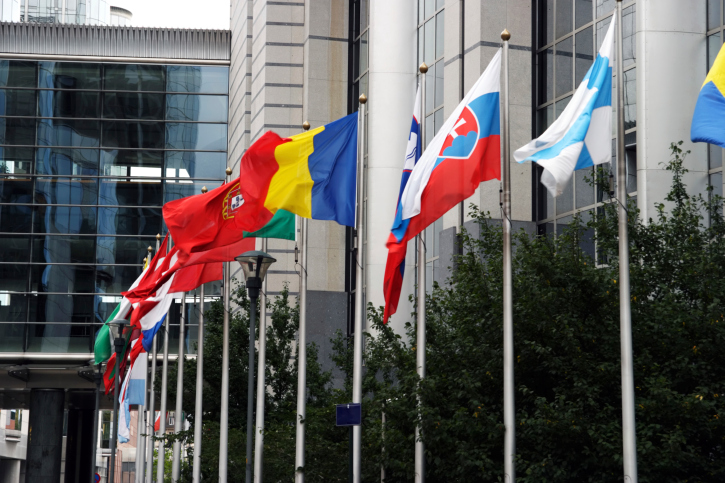
Will the new von der Leyen Commission deliver on climate policy?
Yesterday, during its first plenary session, the newly elected European Parliament confirmed Ursula von der Leyen as President of the European Commis...
News

Publish date: October 13, 2014
News
MEP Darling strongly commended ZEP’s work on CCS and encouraged their efforts in raising further awareness on CCS in the recently renewed European Parliament, especially ahead of the upcoming debates on the 2030 energy and climate package. Moreover, Paula Abreu-Marques, Head of Unit for Renewables and CCS Policy at the Commission’s DG Energy, highlighted the importance of CCS as a key component of Europe’s energy security strategies, as it enables the reconciliation of Europe’s diversified energy mix with its ambitious climate commitments. She further called for the inclusion of CCS within the European Council discussions on the 2030 Package. Abreu-Marques also noted the importance of Member States and the private sector in enabling CCS deployment.
Bellona Europa Director, Jonas Helseth also held a speech at the CCS Breakfast Briefing where he outlined why an environmental NGO sees the rollout of CCS in Europe as necessary to reach Europe’s energy and climate targets. He stressed the potential of both CCS and renewables in addressing the climate change challenges while generating economic benefits for Europe. He further made the point that CCS is the only technology that can reduce inherent emissions of energy intensive industries as well as lead to carbon negative emissions in combination with sustainable bioenergy, highlighting ZEP’s two reports on these areas.
Chairman of ZEP Dr Graeme Sweeney reiterated the importance of transitional measures to deploy CCS, and stressed that CCS will be crucial in meeting the 2050 climate objectives in a cost-effective way, while helping to retain jobs and the European industrial basis. He also urged EU institutions to renew their support for CCS, underlining that Europe is lagging behind in terms of CCS deployment in comparison to regions such as Canada, which saw the launching of the world’s first commercial-scale CCS coal burning plant ‘Boundary Dam’. Helseth, attended the opening of the Boundary Dam CCS plant.
Dzintars Kauliņš, Energy Counsellor at the Latvian Permanent Representation to the EU, acknowledged the role of CCS within the 2020 energy and climate package.

Yesterday, during its first plenary session, the newly elected European Parliament confirmed Ursula von der Leyen as President of the European Commis...

From July 1st, 2024, to December 31st, 2024, Hungary is holding the Presidency of the Council of the European Union (EU), following Belgium’s tenure....

In October 2023, Bellona Europa announced a new FedEx-backed initiative Ports2Decarb – a project aiming to maximise the role of European sea and rive...

Bellona, together with other 29 members of the industrial carbon management community and umbrella organisations, express its support to the inclusio...
Get our latest news